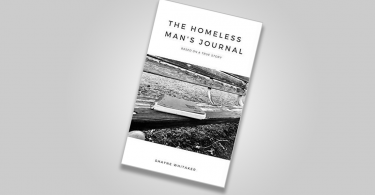It’s a new month, which means another book to check off the Our Shared Shelf reading list. March’s instalment was All About Love: New Visions by American author, feminist and social writer bell hooks.
You won’t be surprised to hear that this book was, of course, all about love. With each chapter focusing on an aspect of love, bell encourages us to become more open to giving and receiving love – through reversing cultural training and rethinking the meaning of the word ‘love’. In the month of International Women’s Day, allowing yourself to appreciate life experiences of the oppressed, the prejudiced and the ignored became even more important.
It’s scary to meet people you admire. Will you disappoint?Will they? @bellhooks was ALL the things.And so LOVING too pic.twitter.com/kDfWh4yeCj
— Emma Watson (@EmWatson) December 17, 2015
A new vision. A new direction
All About Love: New Visions was a visible step away from the books we have read so far. Steinem’s captivating autobiography and Walker’s heart-wrenching novel are tough acts to follow. hooks’ non-fiction ‘self-help manual’ felt like an intrusion on the pattern Emma Watson has established with Our Shared Shelf. Of course, a variety of material is important to educate and understand differing viewpoints and experience, and All About Love was not completely fruitless for me.
Many people in the Goodreads group shared the feeling that it was a difficult book to be gripped by. This month’s discussion was the first time that I have noticed an entire comment thread full of people who had trouble being interested in the book. One user went as far as to say that she “couldn’t figure out a purpose for reading it, other than it’s this month’s selection”.
Self-help manuals are not always easy reading. bell hooks is an amazing writer, but her experiences are not universal. At times, the book felt irritating and the advice too naïve.

Image: Twitter/bellhooksinst
“I was able to keep objective until she started trying to convince me to abandon my individuality and dreams and belongings to lead a communal life. That hippie BS really turned me off. I don’t think the circle is useful to society. Hierarchy makes you WANT to be better. To get farther. To progress. To achieve. The circle sounds VERY much to me like it erases individuality and individual achievement and thus progress in favor of hive mentality and deliberate stagnation.”
The book’s advice, however well-meant, frequently appeared to be defeatist. As the above comment mentions, deserting hopes and aspirations in an attempt to escape the hierarchy is not productive. I was often left feeling deflated and exasperated, wondering why such drastic moves would be required all to rethink the meaning of love. The bursts of empowerment that I felt emanating from the book were sadly too far and few between.
One of the issues I had with the book was the simplicity of the advice. In the third chapter, hooks emphasises the need for honesty in a relationship. However, she then reduces all relationships to a formula: the male learns to lie as to obtain power, while females do the same but to imply powerlessness.
I feel that this book was an odd choice for the Shared Shelf. The advice was very serious and not something most carefree twenty-somethings- Emma’s most obvious demographic- will need to make use of.
The book wasn’t all bad, though. Although published at the turn of the millennium sixteen years ago, bell hooks’ social commentary perfectly describes today’s society of wealth over life:
“In keeping with this shift in values from a people-oriented to a thing- oriented society, the rich and famous, particularly movie stars and singers [let’s add in reality stars here too], began to be seen as the only relevant cultural icons. Gone were the visionary political leader and activists.”
Hooks’ writing ability is not in dispute; her thoughts on love and life are inspiring and thought-provoking: “Love empowers us to live fully and die well. Death becomes, then, not an end to life but a part of living.”
Not wanting to think of my time reading the book as a waste, I was reassured by thought from the Our Shared Shelf discussion:
I think it is an obvious idea that we want to really enjoy the book we are personally reading, however our shared shelf’s purpose is to broaden our feminist lens.
With that in mind, April’s instalment for Our Shared Shelf is Caitlin Moran’s memoir How To Be A Woman, which promises laughter and maybe a life lesson or two.

You can join ‘Our Shared Shelf‘ on Goodreads.com and read February’s review here.








